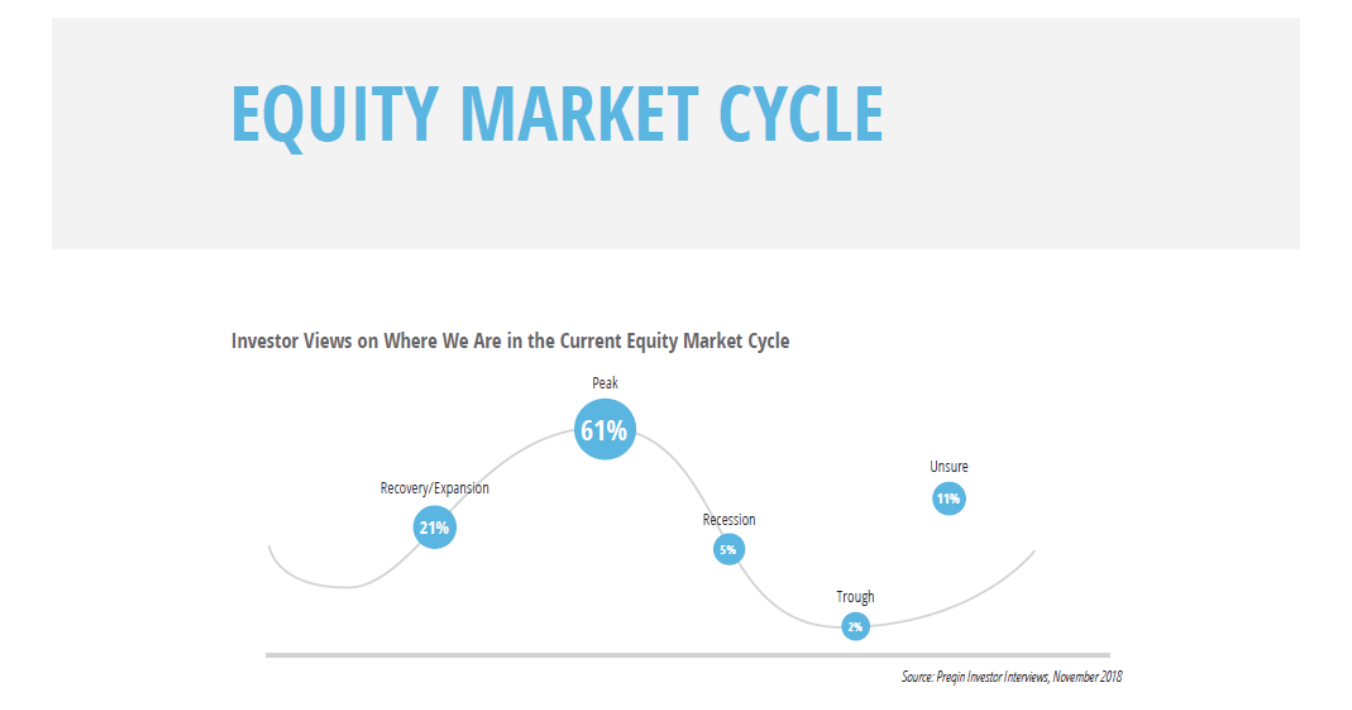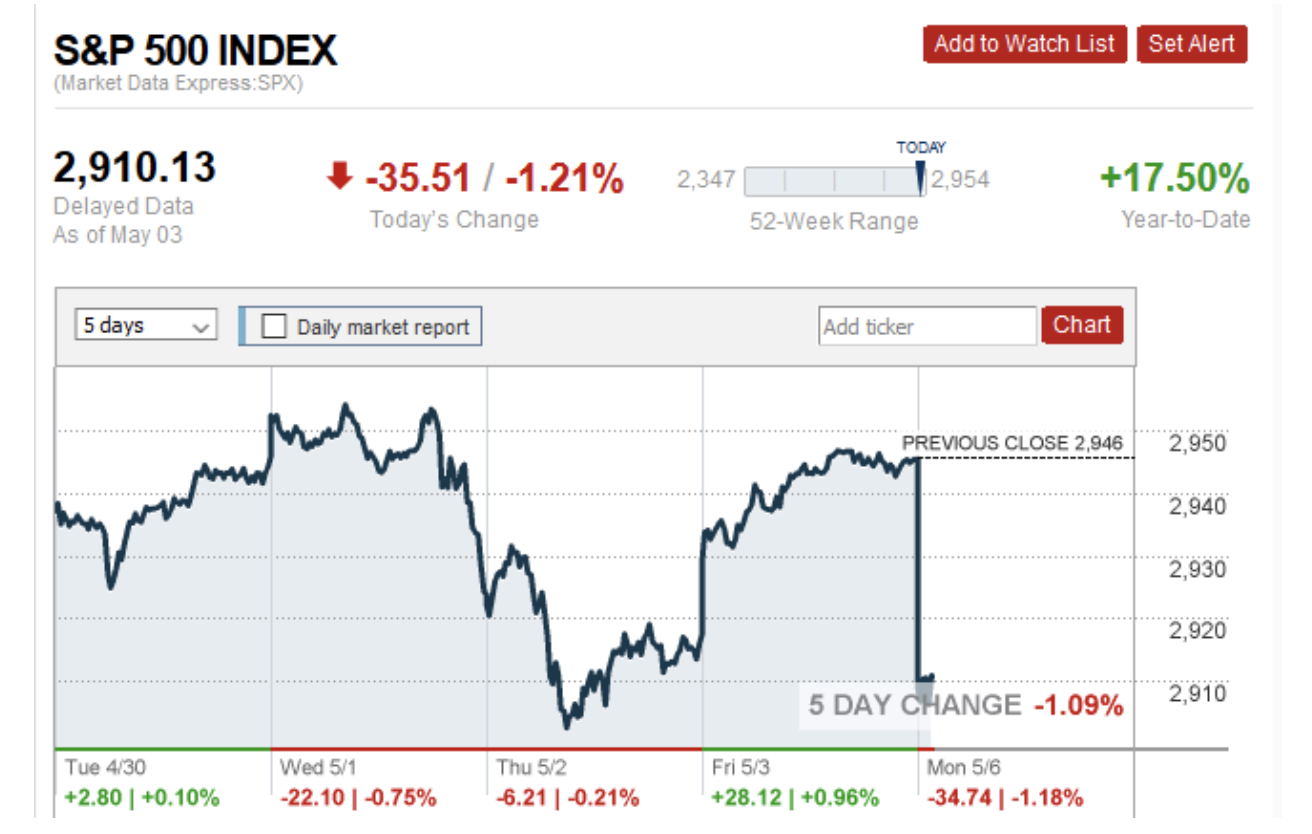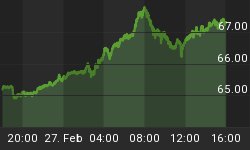Hedge funds’ performance has been abysmal over the past decade as they continue to deliver returns far worse than the broader market. Yet, for better or for worse, they have somehow managed to remain relevant despite investors increasingly souring on them. And now they are about to start getting some serious love thanks to their safe-haven reputation.
A new survey by capital market company Preqin has revealed that 4 out of 5 investors plan to hold or raise their hedge fund allocations over the longer term as they fear another sharp market downturn. That’s the highest proportion since 2014 thanks to investors increasingly turning bearish—a good 61 percent of respondents believe equities markets have peaked compared to just 45 percent a year ago.
There’s a method to the madness though: Hedge funds fared much better than traditional equities during the last financial crisis

(Click to enlarge)
Source: Preqin
After hitting peak levels, the S&P 500 appears to be losing steam and has retreated in 3 of the last 5 sessions. Little wonder, then, that 40 percent of respondents have said they plan to position their hedge fund portfolios more defensively.

(Click to enlarge)
Source: CNN Money
Hedge funds struggling
That’s a pivotal moment for an industry that needs every bit of help it can get.
Over the past few years, hedge funds have fallen on hard times, losing clients and capital as they are unable to justify their high fees in the light of their chronic underperformance.
Over the past decade, the S&P 500 has outperformed the average hedge fund by a wide margin. If you had put $100,000 in the S&P 500 ETF(SPY) with a fee of just 10 basis points in 2009, your investment would now be worth $301,489.
In contrast, the average hedge fund would only have returned $174,787.
Fees for many index funds have fast been approaching zero with a few firms even offering negative-fee products. Hedge funds, on the other hand, still charge an average 1.45 percent as management fees and a hefty 17 percent of returns as performance fees.
Sure, there are some top hedge funds with market-beating records out there whose high fees appear justified. However, these are, by far, in the minority.
Related: Climbing Stocks Weigh On Gold, But A Turnaround May Be Near
Consequently, hedge funds are having a slog trying to attract new capital. According to Federal Reserve data, Americans’ total financial assets have increased by nearly $11 trillion since the beginning of 2015. Yet, less than 1 percent of those gains have come through hedge funds.
In fact, majority of hedge funds have been experiencing significant capital flight. Pater Luarelli, eVestment's global head of research, recently told Axios that quarterly flows have been negative in 10 of the last 14 quarters since the end of 2015 with average outflows of $5.4 billion every year.
Last year, the industry recorded the fewest new fund launches since the turn of the millennium, with the number of funds closing shop exceeding the number of launches in the final half of the year.
Safe haven myth
The oft-cited wisdom that hedge funds are a better investment when markets are volatile could be more myth than fact. Fund managers justify their high fees by arguing that hedge funds are designed to mitigate risk and so investors should be willing to sacrifice some gains during bull markets because hedge funds make up for the shortfall during bear markets.
But things do not always turn out that way in the real world.
Take the case of long-short equity hedge funds, so-called because of their ability to bet both on and against companies. Long-short funds manage about $800 billion, making them the biggest component of the global hedge fund industry.
Long-short hedge funds can bet against particular shares instead of simply making bullish bets like mutual funds and can, therefore, profit even in flat or down markets. In other words, these funds should be able to perform well regardless of market conditions.

(Click to enlarge)
Source: Financial Times
Yet, a close look at hedge funds’ performance in turbulent times shatters the safe haven perception. Hedge funds still managed to underperform the market during last year’s flat market during the first half of the year and were equally pummelled when the market crashed during the latter half. Long-short funds and quantitative funds which use complex trading algorithms performed particularly poorly, highlighting the reason why more investors are turning to index funds and those that employ simpler strategies.
By Alex Kimani for SafeHaven.com
















